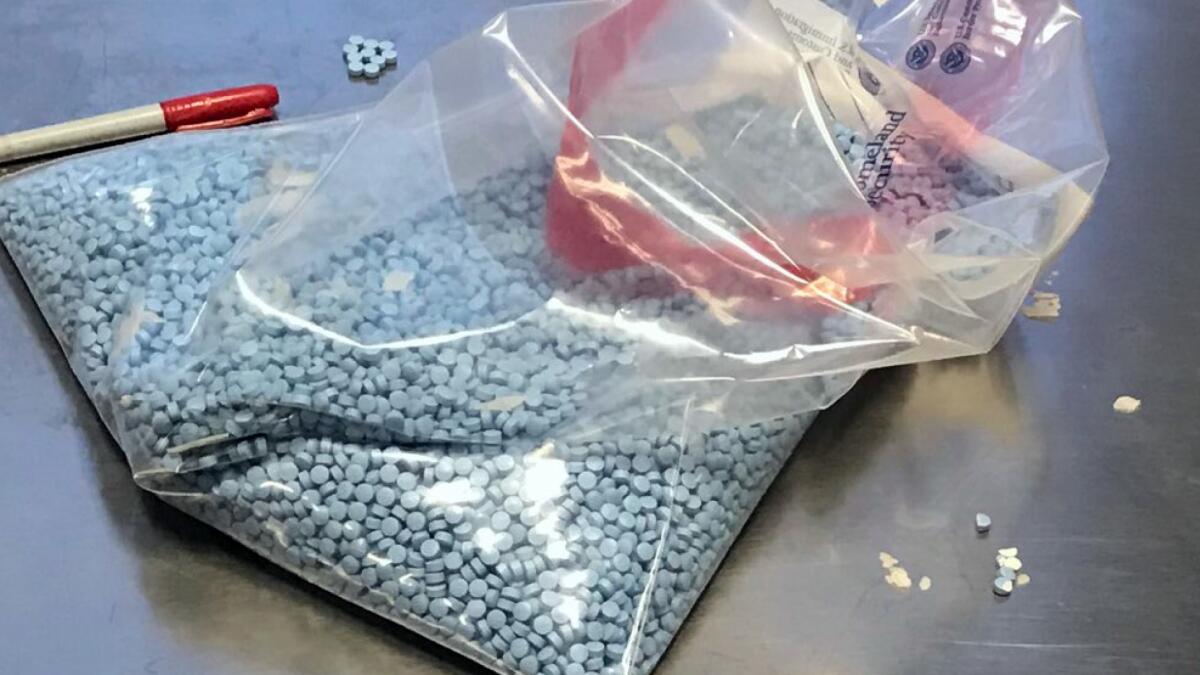Jury finds former Newport Beach bar manager not guilty in fatal 2016 fentanyl overdose

- Share via
A jury found a former Newport Beach bar employee not guilty of selling fentanyl that left one person dead and sent three others to hospitals nearly six years ago but did convict him on counts alleging he dealt cocaine, methamphetamine, MDMA and hydrocodone.
Sean McLaughlin, 48, of Aliso Viejo, was the security manager at American Junkie, a chain bar and grill on the Balboa Peninsula that has since been closed. That’s where four men who later tested positive for furanylfentanyl, a potent opiod nearly identical in structure to fentanyl, lost consciousness at about 1 a.m. on Nov. 18, 2016. One of them, then 25-year-old Ahmed Said, died.
“I was confident from day one that [McLaughlin] didn’t provide those drugs,” his lawyer, Dan Chambers, said. “My hope is that this trial brought to light some of the deficiencies in the investigation ... My hope is that they will find who gave those drugs to Mr. Said and the others because I think that his family deserves that. I mean, this kid was 25.”
Assistant U.S. attorneys Bradley Marrett and Melissa Rabanni brought forth multiple witnesses who testified that a pharmacy of illicit drugs and McLaughlin’s DNA were in a locker secured with his lock at American Junkie. However, furanylfentanyl was not among the drugs found during a search of the business or the defendant’s home.
McLaughlin was seen in surveillance footage near where the drugs were kept on the second floor while the rest of the bar’s employees were downstairs waiting to be questioned by police. Prosecutors suggested that he either disposed of any furanylfentanyl in the building at that point or pocketed it to get rid of it elsewhere. Chambers called that theory speculation.
Two of the people who were hospitalized that evening, Daron Muratyan and Josh Selley, told jurors McLaughlin was the only person who sold drugs to them on the night they overdosed. However, some statements they and others made from the witness stand differed from what they told investigators in the days after Said’s death. Chambers accused them of lying.
One witness, Adel Aziz, testified that he was outside of the bar after customers were cleared out and overheard McLaughlin say “What did you give me?” in what prosecutors called a frantic exchange. But he did not mention hearing those words when he was initially interviewed by investigators, and no call logs confirming whether that conversation happened were presented in court.
The defendant’s attorney claimed there were others seen in surveillance footage who might have sold the drug that caused the overdoses at American Junkie. Newport Beach Police Det. Rick Henry said during trial that he did not watch the video prior to taking McLaughlin into custody.
One person seen at the bar who McLaughlin’s defense cast scrutiny upon was Derrek Elias. He received a text from Said asking for “white girl,” a slang term for cocaine, prior to the victim’s arrival at American Junkie. Another was an as-of-yet unidentified man with a fade haircut who was seen fraternizing with them that evening.
“There were so many other potential people that could have given [Said] the fentanyl,” Chambers said. “It’s hard not to find reasonable doubt because so much of it was caught on camera.”
McLaughlin had been facing a minimum 20-year prison sentence if found guilty in Said, Selley and Muratyan’s overdoses. He is tentatively scheduled to return to Judge David Carter’s courtroom in the Ronald Reagan Federal Building in Santa Ana for a sentencing hearing on April 3, regarding the other charges he was convicted on.
A handful of McLaughlin’s relatives were present throughout proceedings. After jurors read their verdict and then left the room Tuesday, he and his children wept as they embraced each other.
All the latest on Orange County from Orange County.
Get our free TimesOC newsletter.
You may occasionally receive promotional content from the Daily Pilot.




